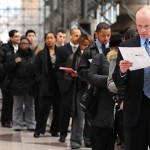The Coming Double Dip Recession
 With record setting deficits and debt running deep into the trillions, President Obama’s deferred tax rate increases could spell trouble for the U.S. economy in 2011.
With record setting deficits and debt running deep into the trillions, President Obama’s deferred tax rate increases could spell trouble for the U.S. economy in 2011.
The other day Arthur Laffer (originator of the principle that lowering taxes increases tax revenues), had a disquieting article in the Wall Street Journal that should give pause about the future.
He noted that tax cuts introduced in the U.S. when George Bush was president, end on Jan. 1, 2011. The maximum income tax rate will then go from 35% to 39.6%, the dividend tax from 15% to a whopping 49.6%, capital gains tax from 15% to 20% and a death tax on estates from 0% to 55%.
What that means is that people who can do it, are shifting production and income out of next year into this year to take advantage of lower taxes. This helps explain why the economic recovery in 2010 looks better than predicted.
It also means next year income will be less than it should be and, according to Laffer, “my best guess is that the train goes off the tracks and we get our worst nightmare of a severe ‘double dip’ recession.”
To support his prediction, Laffer points to 1981 when Ronald Reagan began a series of tax cuts that didn’t take effect until 1983. So much economic activity was deferred until the tax cuts came into effect, that there was virtually no growth in America and unemployment reached 10%.
Then in 1983 “the economy took off like a rocket,” with an average economic growth rate of 7.5%, and 5.5% in 1984. That was then, this is now.
With record setting deficits and debt running deep into the trillions, President Obama’s deferred tax rate increases will likely be the reverse of President Reagan’s tax rate decreases – the economy will seem to collapse in 2011.
If corporate profits are considered as a share of the GDP, they are too high this year considering the state of the U.S. economy, as it struggles to emerge from the recession. These high profits represent a shift of income anticipated in 2011 into 2010 to avoid next year’s high tax rate.
If profits appear to tumble next year – the stock market will react accordingly and plummet. At least that’s the view of Arthur Laffer – a guy who has a record of accuracy and doesn’t sugarcoat his concerns.
Politicians in both Canada and the U.S. (and elsewhere) have difficulty seeing how lowering taxes can increase tax revenues. The public doesn’t have the same problem. If we of the unwashed multitudes are allowed to keep more of the money we earn, we are more likely to spend it. If the government takes it – we can’t spend it.
That seems obvious to wage earners, if not to those who feed at the public trough.
Look at the capital gains tax. In the U.S., whenever this tax was lowered, investors tended to sell and buy more shares, thus the overall revenue from the gains tax increased, investors kept more of their own money, businesses benefited, more money was in constant circulation. Isn’t that what the economy wants?
There is virtually no downside to cutting taxes, except it means government has to be more careful about how it spends money, and be less prone to give themselves pay raises and benefits that exceed the confines of decency.
There are few indications that the Obama administration appreciates the potential benefits of lowering taxes.
Instead, it feels that printing money and going into debt at least postpones the day of reckoning.
Tough times loom ahead.